Men’s Olympic golf: The verdict
From the sporting spectacle to some decidedly dodgy commentary...
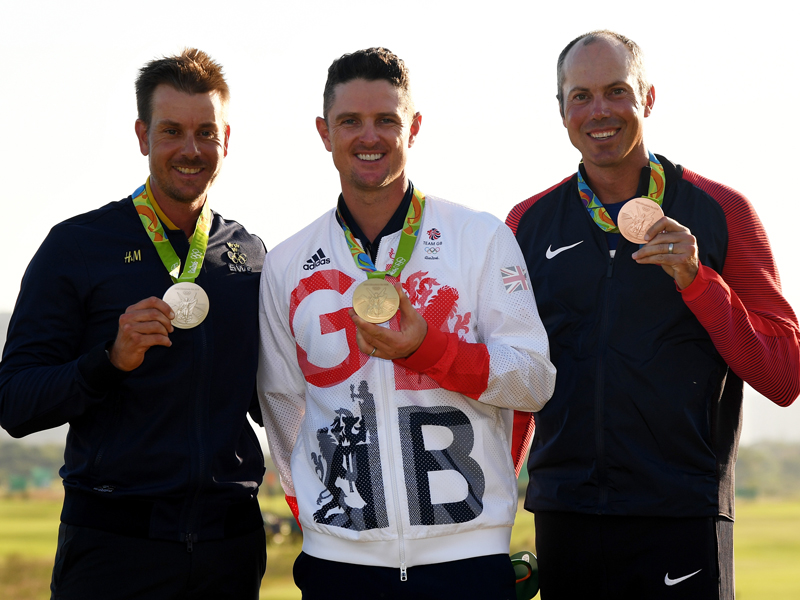

The sporting spectacle at the men’s Olympic golf was fabulous, as long as you didn’t pay too much attention to the commentary. Fergus Bisset looks at what went well and what left room for improvement.
From a purely sporting perspective, the men’s Olympic golf competition delivered an undeniably thrilling and suitably competitive spectacle: The recent Open champion Henrik Stenson locked in a compelling final day battle with fellow Major winner Justin Rose, who was representing the country where golf was born, and the pair being pressed hard by Matt Kuchar of the USA – the country home to the most golfers.
But we were missing many of the world’s best players in Rio, who might now be kicking themselves at their decision to skip the tournament, and the commentary on the international coverage left a little to be desired. Here below is a report on the event: What went well and what could be improved.
What went well? ...
The level of golf The standard in Rio was suitably high for an Olympic competition. Starting on day one with Marcus Fraser’s brilliant 63 and Justin Rose’s hole-in-one, spectators both on the ground and on TV were left in no doubt that this was a sport being played to its very highest level.
Then, when it came to the climax of the tournament, nobody at the International Golf Federation could have hoped for more from the entrants. The current Open champion, arguably the best player in the world right now Henrik Stenson, going toe-to-toe with another of the top men Justin Rose. It was a dream scenario. It was also a great battle that went down to the wire and was concluded by a beautiful shot by Rose on the 72nd hole.
To have Matt Kuchar charging up the board, applying the pressure was an added bonus and the play of dynamic young Belgian Thomas Pieters caught the eye. With cameos by players from Asia – Kiradech Aphibarnrat, Australasia – Marcus Fraser and South America – Emiliano Grillo, golf was showcased as a worldwide sport capable of producing huge excitement and incredible levels of skill, power and mental fortitude. Those watching, whether golfers or not, will surely have been impressed.
Get the Golf Monthly Newsletter
Subscribe to the Golf Monthly newsletter to stay up to date with all the latest tour news, equipment news, reviews, head-to-heads and buyer’s guides from our team of experienced experts.
With only three medals up for grabs and no prize money on offer, there had been concern that those not in contention as the tournament progressed may not have given it there all. That was certainly not the case. Throughout the 60-man field it was evident that the players were eager to produce a show and finish as highly placed as they could: 38 of the 60 players finished at level par or better. Shingo Katayama’s last day performance encapsulated the Olympic spirit – the effort and the struggle to do one’s best, win or lose. The Japanese player was dead last through three rounds (although his rounds of 74, 75 and 77 were hardly a disgrace,) but, playing on his own on day four, he knocked it round in a superb 66 to climb from 59th into 54th place. With nothing on the line save personal and national pride, that was a sterling effort.
The course
Gil Hanse’s creation at Reserva de Marapendi provided a great stage for the first Olympic Golf event in 112 years. Yes, you could say it looked a little rough around the edges with a few high wire fences and some scabby looking bits of ground. But the playing surfaces themselves were excellent and the links-like nature of the track provided a great and unusual test for the players.
The excellent thing was, this wasn’t simply a stadium course in the style of those seen on the PGA Tour week in, week out. This layout blended many elements of golf from around the world. Yes, there were aspects of PGA Tour stadium courses, but also hints of the links, and of the sandbelt courses of Australia. The holes delivered great variety and players were asked to display an array of skills in order to succeed. That meant the cream rose to the top as we saw with the eventual medallists.
The crowds
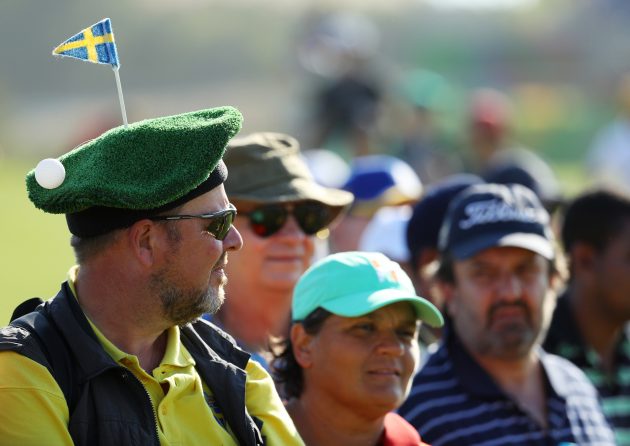
They were brilliant, particularly on the final day. At an Olympics where many of the sports have appeared poorly attended. We might have justifiably feared that the first Olympic gold medal for over a century might have been won in front of one man and his dog. No way! There were thousands of excited fans there on the last day making the spectacle worthy of the occasion.
A great thing was: it was clear that those in attendance were not all die-hard golf fans. The fact that people watching didn’t know the rules to such an extent that they thought they could pick up a moving ball provided evidence of that. OK, that was temporarily a little problematic and the lack of understanding when it came to silence when players were hitting might have been a minor nuisance… but the key thing was, that people were interested and generally enthused by the competition.
The passion of the competitors
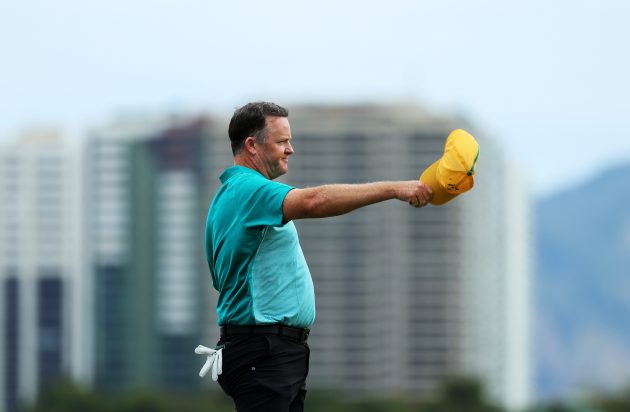
And it wasn’t just spectators displaying passion – the players there were obviously proud to be representing their countries. It’s something they don’t do so obviously on a weekly basis and it must have been thrilling for them to feel the weight of a nation’s support at their backs. You could see it when Justin touched the GB badge by his heart when he holed the winning putt, or displayed by Sergio Garcia from start to finish. The guys who were there – from the opening ceremony to the close of play – were proud and humbled to be there.
And room for improvement ...
The commentary and the BBC
The most irritating aspect for me as a British spectator was the lack of designated British commentators for the event. Why didn’t the BBC invest the time of one of the many commentators they have out in Rio to give us a British perspective on this historic event, won in the end by a Brit?
Andrew Cotter is in Rio, so too Hazel Irvine, both of whom have great experience of commentating on the golf. NBC provided the American audience with their usual, high-quality coverage but we were subjected to the international commentators described on Twitter by GM columnist Paul Lawrie as thus: “Commentators at Olympic golf are worst I’ve ever heard.”
In my opinion, this wasn’t an exaggeration. It was as if they’d never seen golf before. I think they must have accidentally stumbled into the commentary booth while on a tour of the Olympic studios and found the door locked behind them. To save themselves dying from boredom they turned to the mics and had a go at describing what was appearing on the screens before them. “He’s hitting this little white ball into that hole.”
And the BBC gave comparatively little time to the event on the main feed. Yes, you could watch the lot on red button and BBC4, but if you were on BBC1 or 2 (or between the two because they’re constantly switching to make way for Eastenders or some such) you would only have seen the very end, getting little or no feel for how the competition panned out. You would also have been taken away just a minute or so after Rose had holed the winning putt and only briefly taken back to see him presented with gold and then, much later, to have a quick chat with him.
Here’s a cynical theory on why we were subjected to it: The BBC has all but given up on golf coverage, with Sky taking over at The Open this summer. It turned out to be a bad year for Auntie to ditch the biggest golfing event in Britain as it was an absolute belter with Stenson and Mickelson putting on the best final round show since Nicklaus and Watson in 1977.
The beeb then was hoping to brush golf under the carpet a little at Rio so didn’t put anyone on the job. “Yes, yes, definitely we’ll send someone to commentate all day on the 10M air rifle… What? Golf… No, nobody’s interested in that, we’ll just put that on red button… What’s that? 4 million people in Britain play golf? No, I don’t think you’re right there…. Look – we’ve got someone in the final of the canoeing!”
Then it became obvious that the golf was rather exciting and that Justin Rose might well win it. You can imagine the scene… “What do you mean there are huge crowds at the golf and only six occupied seats at the canoeing? Oh dear… And a Brit is in line to win gold? Oh dear… And NBC has got huge viewing figures? Oh dear… And everyone is slating the international commentary on Twitter and we’ve got nobody there? Oh dear, oh dear… “
Absentees
Although we had a great winner in Justin Rose and the best in the field came to the fore in the final round, it can’t be denied that it was a shame that Rory McIlroy, Jason Day, Jordan Spieth, Adam Scott etc. weren’t there. They might regret it now, they might not…
Those who did compete, win or lose, were keen to emphasise how pleased and proud they were to be there. Sergio Garcia, Matt Kuchar et al. did a great job of expressing the importance of the event and how much it meant to them. I’m pretty sure we won’t see so many swerving the men's Olympic golf in Tokyo.
With the women’s golf set to get underway tomorrow, there’s a huge amount of positivity about the sport’s return to The Olympics. The fans seem to have embraced it and it clearly works as an Olympic sporting spectacle. In the women’s tournament, the very best are all there and they’re keen to showcase their talents on sport’s biggest stage. We just have to hope that those poor chaps have now been released from the commentary booth so they can continue their tour and the experts can get back to work.

Fergus is Golf Monthly's resident expert on the history of the game and has written extensively on that subject. He has also worked with Golf Monthly to produce a podcast series. Called 18 Majors: The Golf History Show it offers new and in-depth perspectives on some of the most important moments in golf's long history. You can find all the details about it here.
He is a golf obsessive and 1-handicapper. Growing up in the North East of Scotland, golf runs through his veins and his passion for the sport was bolstered during his time at St Andrews university studying history. He went on to earn a post graduate diploma from the London School of Journalism. Fergus has worked for Golf Monthly since 2004 and has written two books on the game; "Great Golf Debates" together with Jezz Ellwood of Golf Monthly and the history section of "The Ultimate Golf Book" together with Neil Tappin , also of Golf Monthly.
Fergus once shanked a ball from just over Granny Clark's Wynd on the 18th of the Old Course that struck the St Andrews Golf Club and rebounded into the Valley of Sin, from where he saved par. Who says there's no golfing god?
-
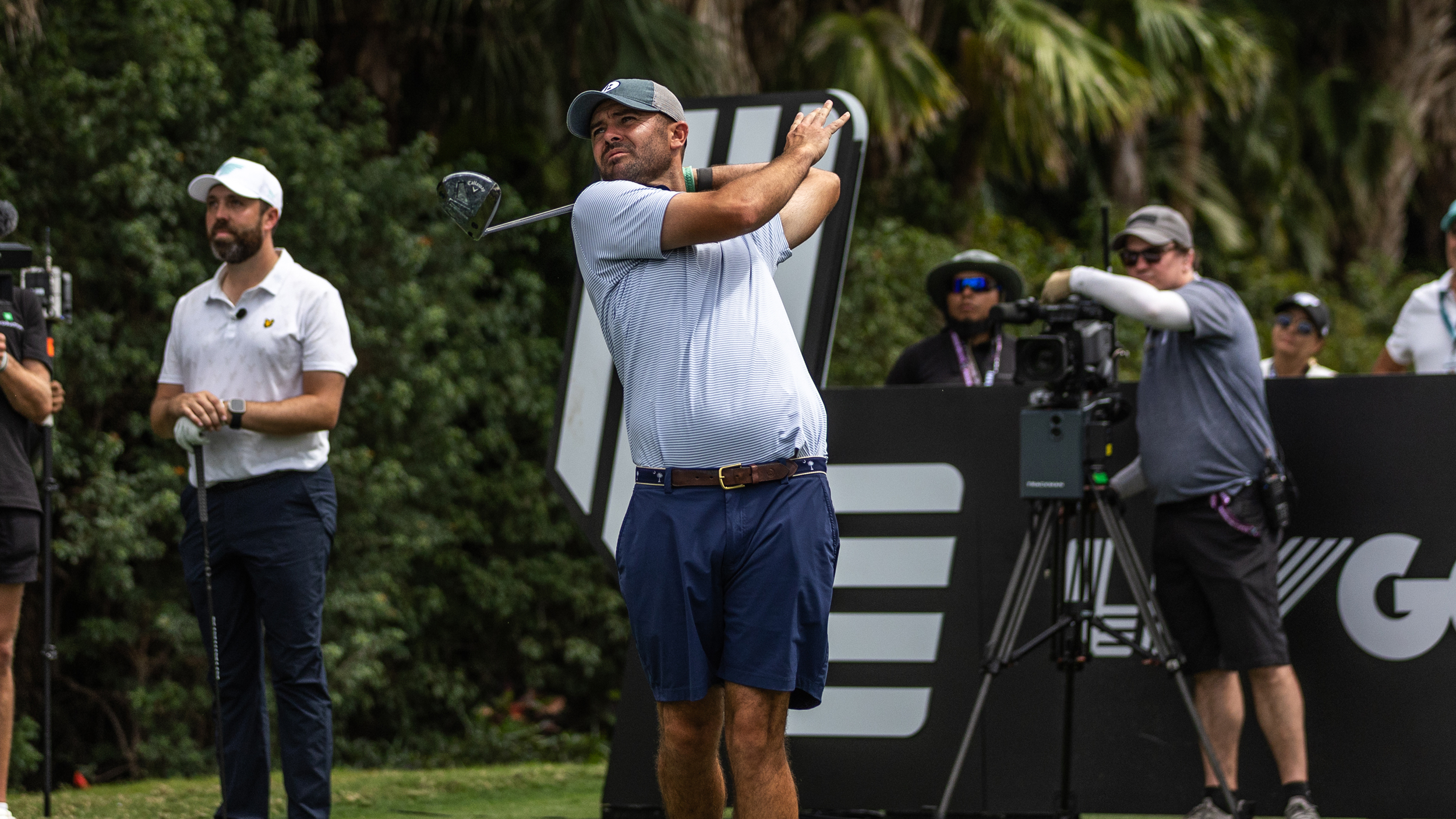 Reports: Wesley Bryan Suspended By PGA Tour After Playing In LIV Golf Duels
Reports: Wesley Bryan Suspended By PGA Tour After Playing In LIV Golf DuelsThe 2017 RBC Heritage winner is said to have been suspended by the PGA Tour after teeing it up in the recent LIV Golf creator event in Miami
By Elliott Heath
-
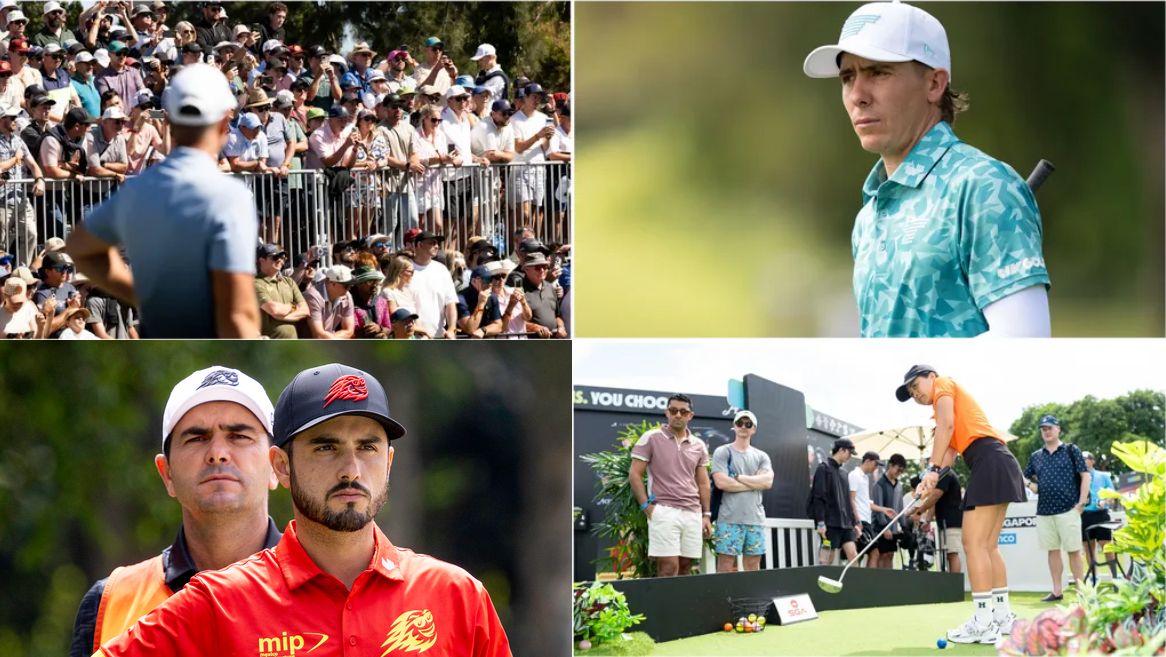 LIV Golf Mexico City: Book Your Tickets To See The Stars Of The Game
LIV Golf Mexico City: Book Your Tickets To See The Stars Of The GameMexico City welcomes LIV Golf's all-star roster later this month, where you can see the world's best players and enjoy the show and the family friendly atmosphere
By Golf Monthly
-
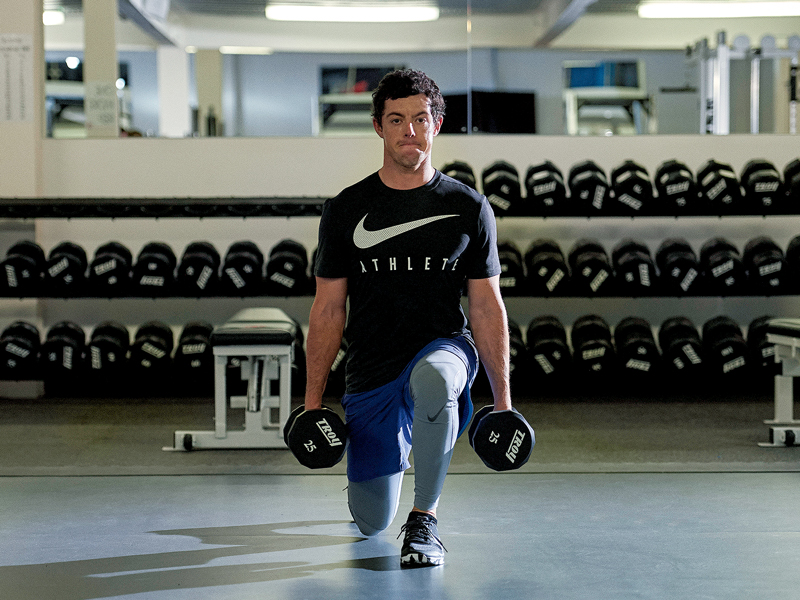 Rory McIlroy Gym Routine... Revealed!
Rory McIlroy Gym Routine... Revealed!In this Rory McIlroy Gym Routine article we discover how the Northern Irishman keeps himself so fit
By Neil Tappin
-
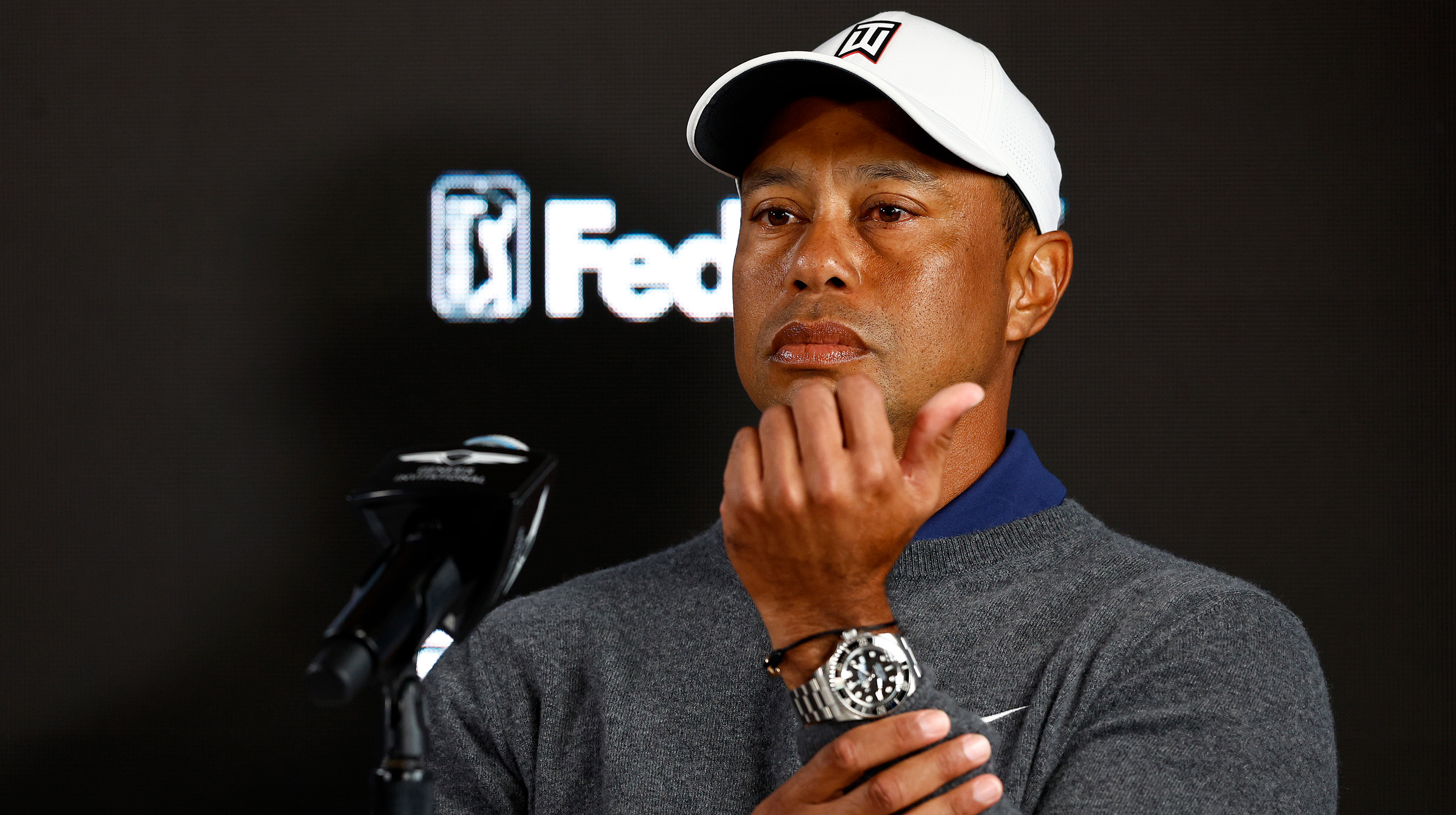 What Is Tiger Woods' Net Worth?
What Is Tiger Woods' Net Worth?Tiger Woods became the first billion dollar athlete in 2009
By Elliott Heath
-
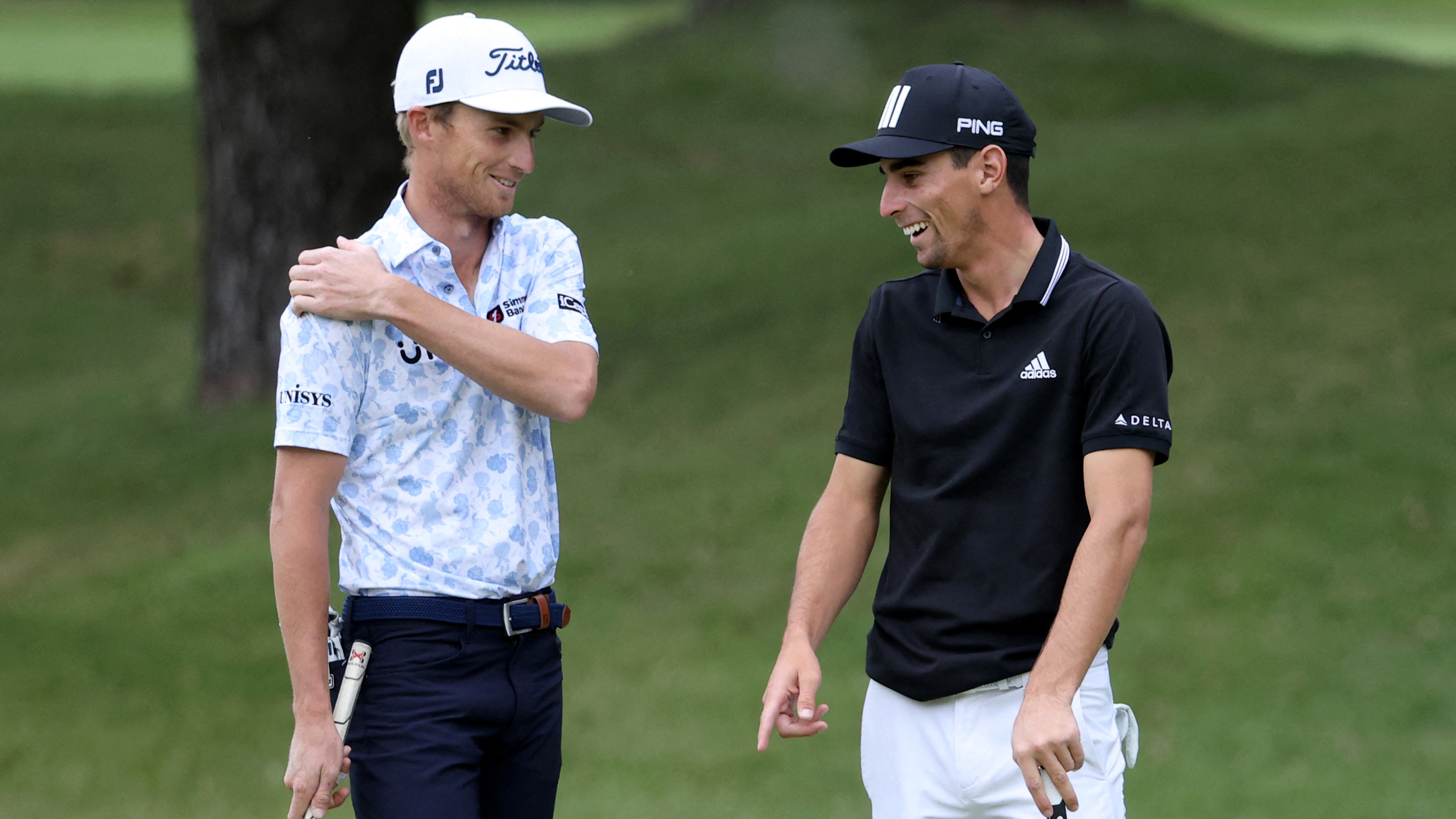 Five Outsiders Who Could Win The Masters
Five Outsiders Who Could Win The MastersWe consider five players who might surprise the favourites and claim victory at Augusta
By Fergus Bisset
-
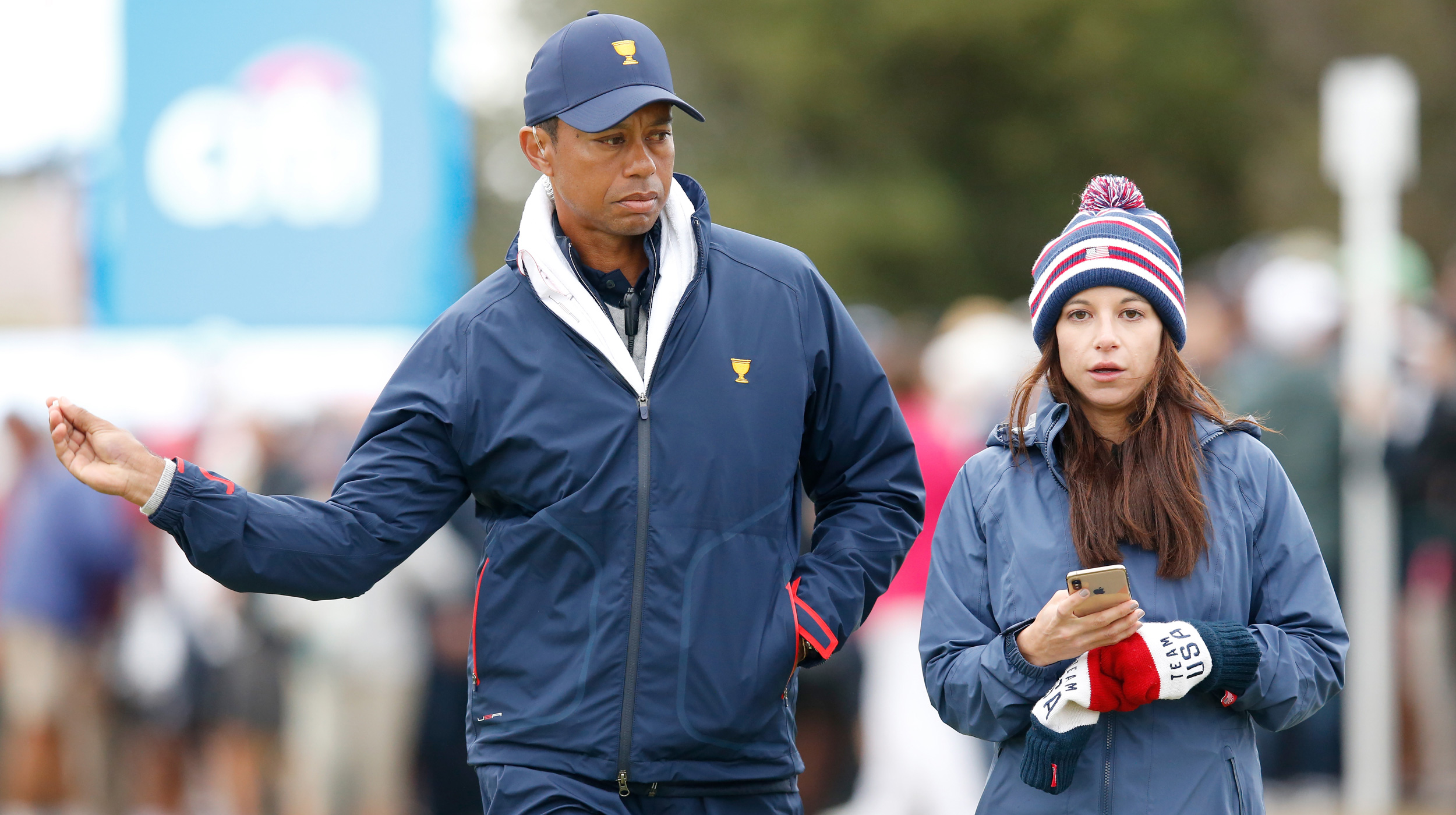 Who Is Tiger Woods’ Girlfriend?
Who Is Tiger Woods’ Girlfriend?Find out more on who the American professional golfer is going out with here.
By Matt Cradock
-
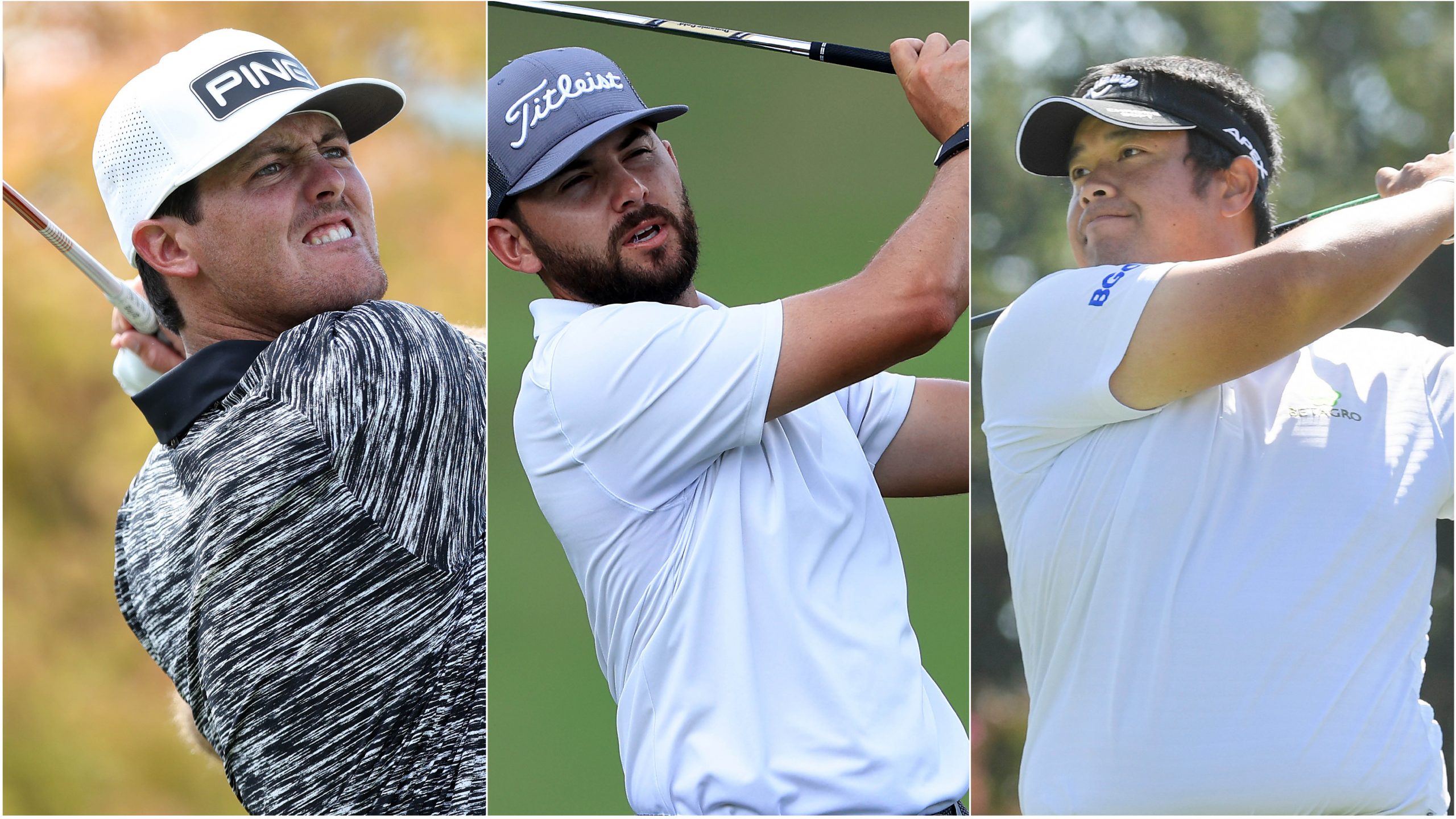 Bermuda Championship Golf Betting Tips 2021
Bermuda Championship Golf Betting Tips 2021Who is the GM Tipster backing to win this week in Bermuda?
By Jeremy Chapman
-
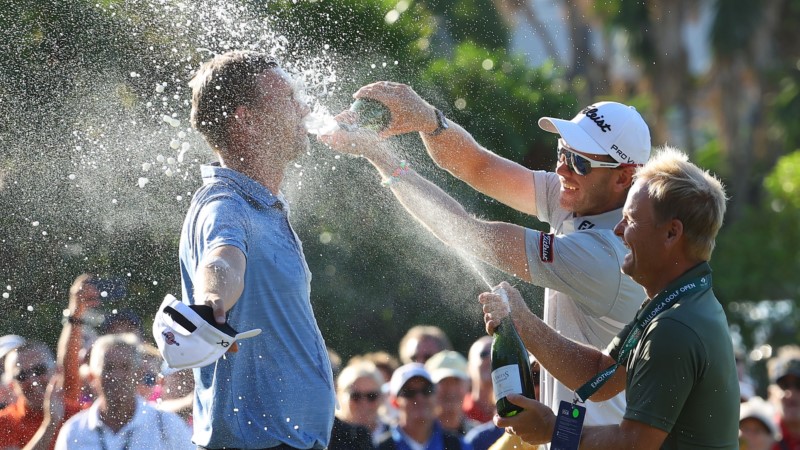 Jeff Winther Claims Maiden European Tour Title
Jeff Winther Claims Maiden European Tour TitleJeff Winther Claims Maiden European Tour Title
By Matt Cradock
-
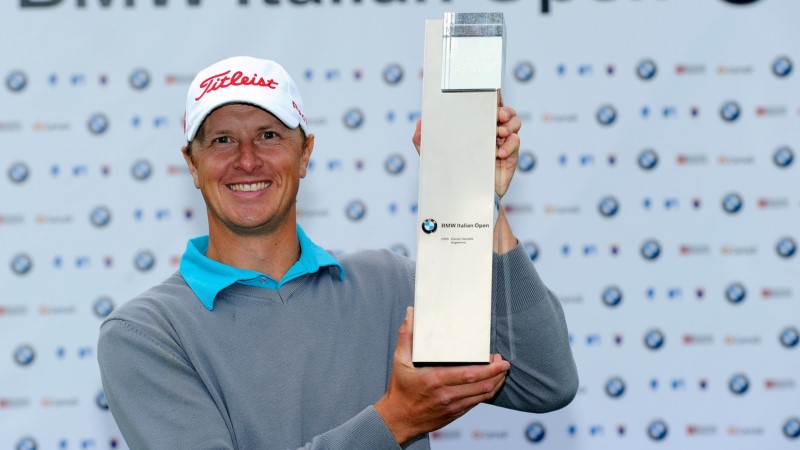 Fredrik Andersson Hed Passes Away Following Battle With Cancer
Fredrik Andersson Hed Passes Away Following Battle With CancerFredrik Andersson Hed Passes Away Following Battle With Cancer
By Matt Cradock
-
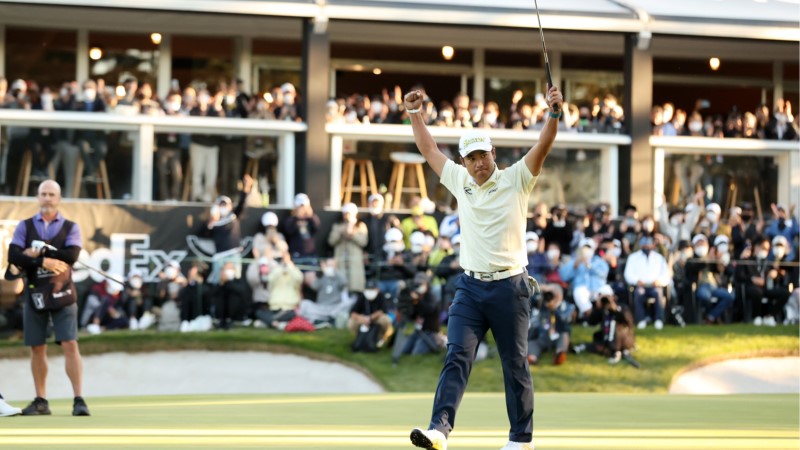 Hideki Matsuyama Claims Zozo Championship On Home Soil
Hideki Matsuyama Claims Zozo Championship On Home SoilHideki Matsuyama Claims Zozo Championship On Home Soil
By Matt Cradock